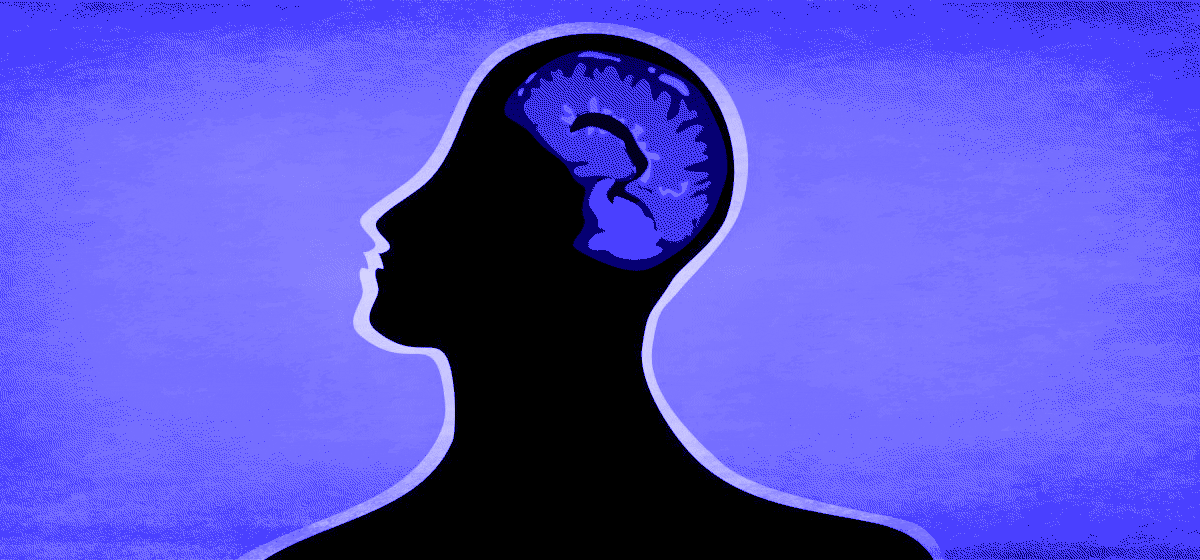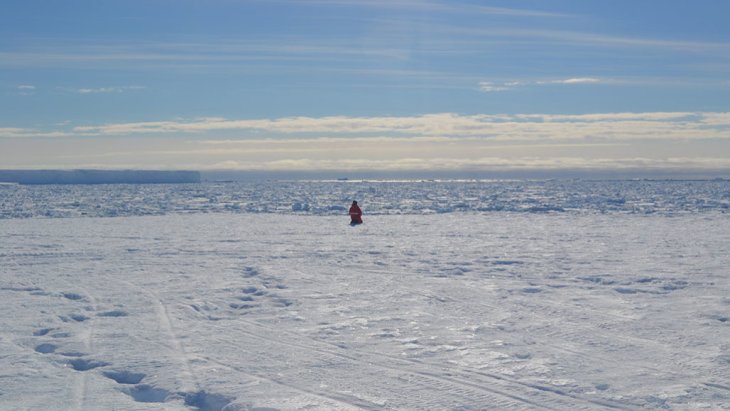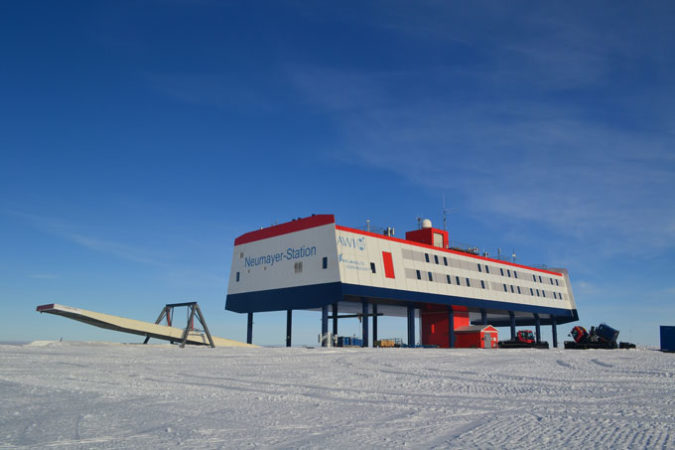Scientists' Brains Reduce In Size After Spending Over A Year In Antarctica
Aadhya Khatri - Dec 12, 2019

The hippocampus areas of the researchers' brains have lost 7% of the size after spending 14 months at an Antarctica research station
- IIT-Madras Aims To Interpret Brain Signals Into Language
- Sciencists Explains Why We Often Make Wrong Decisions
- AI Will Soon Help Doctor To Diagnose Brain Hemorrhages
A recent study revealed that after spending some time at the Antarctica research station, surrounded by the seemingly endless white landscape and having minimum contact with the outside world, scientists have their brains shrunken a little.
According to Alexander Stahn, a physiologist, it was exciting to see the vast landscape at first, but it stayed the same all the time.

The said crew consists of eight researchers and scientists, along with a cook, is now stationed at Neumayer III, a research facility of Germany. In the last 14 months, they spend at the station, the team has to put up with the long polar winter when the temperature can reach –50° Celsius. The feeling of being isolated and surrounded by the same landscape is what astronauts may expect during space exploration.
Some studies conducted on animals have pointed out that these conditions can hurt the functions of the hippocampus, an area in the brains responsible for navigation and memory. However, so far, we have had no solid evidence that this occurrence can be expected on humans.

Stahn and some other colleagues took images of their fellow scientists before and after their stay at the Antarctica research facility. What they found out is that the hippocampus areas of the researchers have lost 7% of the size after the endeavor in comparison with others of the same sex and age who did not join the expedition.
This sounds like a piece of devastating news for scientists and researchers working in an isolated environment; however, we have reason to be confident that the shrinking can be reversed. Stahn said that while the hippocampus is sensitive to social isolation, it can react positively when the scientists go back to an environment with plenty of opportunities to interact and explore.
Featured Stories

Features - Jan 29, 2026
Permanently Deleting Your Instagram Account: A Complete Step-by-Step Tutorial

Features - Jul 01, 2025
What Are The Fastest Passenger Vehicles Ever Created?

Features - Jun 25, 2025
Japan Hydrogen Breakthrough: Scientists Crack the Clean Energy Code with...

ICT News - Jun 25, 2025
AI Intimidation Tactics: CEOs Turn Flawed Technology Into Employee Fear Machine

Review - Jun 25, 2025
Windows 11 Problems: Is Microsoft's "Best" OS Actually Getting Worse?

Features - Jun 22, 2025
Telegram Founder Pavel Durov Plans to Split $14 Billion Fortune Among 106 Children

ICT News - Jun 22, 2025
Neuralink Telepathy Chip Enables Quadriplegic Rob Greiner to Control Games with...

Features - Jun 21, 2025
This Over $100 Bottle Has Nothing But Fresh Air Inside

Features - Jun 18, 2025
Best Mobile VPN Apps for Gaming 2025: Complete Guide

Features - Jun 18, 2025
A Math Formula Tells Us How Long Everything Will Live
Read more

ICT News- Feb 10, 2026
Discord's Teen Safety Sham: Why This Data Leak Magnet Isn't Worth Your Trust Anymore
Cancel your Nitro, export your data, and move on before the next leak hits. Your personal information deserves better.

ICT News- Feb 08, 2026
Is Elon Musk on the Path to Becoming the World's First Trillionaire?
For now, the world watches as Musk's empire continues to expand into uncharted territory.

Mobile- Feb 11, 2026
Top 5 Cheap and Efficient Gaming Phones in 2026
These phones prove you don't need $1000+ for efficient gaming. The RedMagic 11 Air leads for pure power, while POCO options win on value.

ICT News- Feb 09, 2026
PS6 Rumors: Game-Changing Specs Poised to Transform Console Play
Keep an eye out for Sony's official reveals as we near what's ahead.
Comments
Sort by Newest | Popular